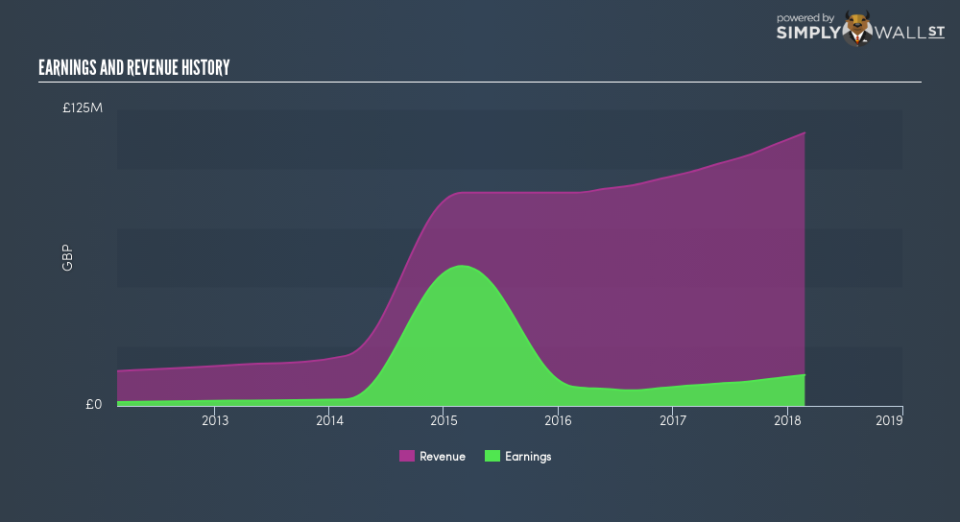Should You Be Concerned About Morses Club PLC’s (LON:MCL) Earnings Growth?

Assessing Morses Club PLC’s (LON:MCL) performance as a company requires looking at more than just a years’ earnings data. Below, I will run you through a simple sense check to build perspective on how Morses Club is doing by comparing its most recent earnings with its historical trend, in addition to the performance of its consumer finance industry peers.
Check out our latest analysis for Morses Club
Could MCL beat the long-term trend and outperform its industry?
MCL’s trailing twelve-month earnings (from 24 February 2018) of UK£13.09m has jumped 52.45% compared to the previous year. Furthermore, this one-year growth rate has exceeded its 5-year annual growth average of 5.63%, indicating the rate at which MCL is growing has accelerated. How has it been able to do this? Well, let’s take a look at whether it is only attributable to an industry uplift, or if Morses Club has seen some company-specific growth.
The ascend in earnings seems to be propelled by a strong top-line increase overtaking its growth rate of costs. Though this has caused a margin contraction, it has made Morses Club more profitable. Scanning growth from a sector-level, the UK consumer finance industry has been growing its average earnings by double-digit 43.56% over the past twelve months, and a more muted 7.69% over the past half a decade. This growth is a median of profitable companies of 9 Consumer Finance companies in GB including International Personal Finance, Park Group and PCF Group. This means whatever tailwind the industry is profiting from, Morses Club is capable of leveraging this to its advantage.
In terms of returns from investment, Morses Club has fallen short of achieving a 20% return on equity (ROE), recording 19.68% instead. However, its return on assets (ROA) of 14.73% exceeds the GB Consumer Finance industry of 9.13%, indicating Morses Club has used its assets more efficiently. And finally, its return on capital (ROC), which also accounts for Morses Club’s debt level, has increased over the past 3 years from 7.28% to 20.78%.
What does this mean?
Morses Club’s track record can be a valuable insight into its earnings performance, but it certainly doesn’t tell the whole story. While Morses Club has a good historical track record with positive growth and profitability, there’s no certainty that this will extrapolate into the future. I suggest you continue to research Morses Club to get a better picture of the stock by looking at:
Future Outlook: What are well-informed industry analysts predicting for MCL’s future growth? Take a look at our free research report of analyst consensus for MCL’s outlook.
Financial Health: Are MCL’s operations financially sustainable? Balance sheets can be hard to analyze, which is why we’ve done it for you. Check out our financial health checks here.
Other High-Performing Stocks: Are there other stocks that provide better prospects with proven track records? Explore our free list of these great stocks here.
NB: Figures in this article are calculated using data from the trailing twelve months from 24 February 2018. This may not be consistent with full year annual report figures.
To help readers see past the short term volatility of the financial market, we aim to bring you a long-term focused research analysis purely driven by fundamental data. Note that our analysis does not factor in the latest price-sensitive company announcements.
The author is an independent contributor and at the time of publication had no position in the stocks mentioned. For errors that warrant correction please contact the editor at editorial-team@simplywallst.com.

 Yahoo Finance
Yahoo Finance 
